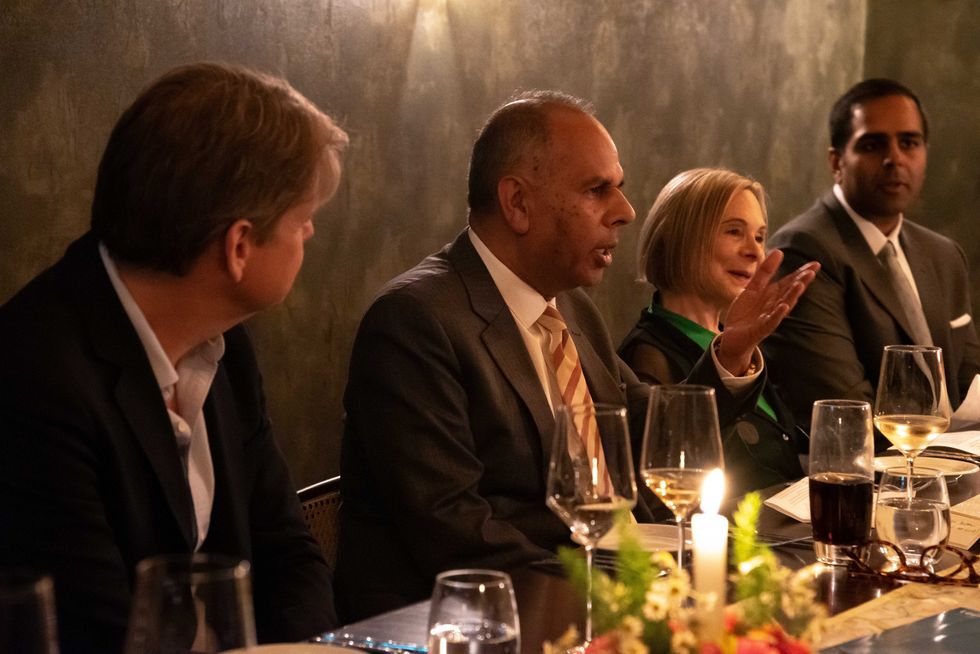THE peacefulness of the lush green fields of paddy and maize lining the road to Vemulaghat village in Telangana, India belies the anger of villagers protesting against the state’s plans to acquire about 21,000 acres of land for a reservoir.
The Komuravelli Mallanna Sagar reservoir will irrigate 1.2 million acres of drought-prone land, according to state officials. Nearly a dozen villages will be submerged in the process, displacing more than 25,000 people, including those in Vemulaghat who have been protesting for more than three months.
“If the state wants water, why should we be kicked out? This is our land, our village,” said Roopa Mandoli, 34, who owns and cultivates two acres of land with her husband.
“If we are to give up everything, then we should at least be adequately compensated by the state. With the kind of money they are offering us, we will be impoverished,” she told the Thomson Reuters Foundation, as villagers standing beside her nodded.
Conflict over land rights has increased in recent years in India, one of the world’s fastest growing economies, with rising demand for land for industrial use and development projects.
Residents of Vemulaghat, the largest of 14 villages that will be affected by the proposed reservoir, have held a relay fast and marched to the highway holding placards and chanting slogans. One farmer from a nearby village killed himself.
Policemen stopped the highway protest, beating back villagers with batons and injuring dozens, activists say. The government has banned “unlawful assembly” and processions in Vemulaghat, and restricted visitors.
Now, villagers gather in an open space under a colourful awning, their protest slogans and pictures of the baton charge stuck on the walls, and watched constantly by several policemen.
“It’s like a military zone,” said Kiran Kumar Vissa, a campaigner with Rythu Swarajya Vedika, an umbrella organisation of NGOs working on agriculture issues, in Hyderabad city.
“The government is using intimidation to coerce the villagers into handing over their land,” he said.
India has introduced several land laws in the past decade to give the vulnerable more rights, but many of these laws are diluted and do not protect poor farmers enough, activists say.
Last month, the Supreme Court said land acquired by West Bengal for a Tata Motors factory must be returned to farmers as it was not acquired for a “public purpose”, ending a decade-long fight by the displaced farmers.
Rights groups protesting against the Mallanna Sagar project say there is a lack of clarity in the state’s land acquisition policy, and that the government has not released detailed reports on the project and its environmental and social impact.
Last year, the newly-created Telengana issued a government order known as GO123, to enable easier acquisitions of land for public projects.
Rights groups say the state order runs counter to the federal Land Acquisition Act of 2013, as it does not specify the amount of compensation to be paid, or list the conditions of rehabilitation and resettlement for those displaced.
“The state is using the order indiscriminately,” said Vissa.
“If GO123 is implemented, it will set a dangerous precedent for other states to bypass the Land Acquisition Act,” he said.
State irrigation minister Harish Rao has told reporters the government will compensate those displaced according to the Land Acquisition Act. But he did not say when or specify the amount.
After several calls to the minister, a spokesman said he would not comment on the project at this time.
Compensation amounts offered for Mallanna Sagar range from 585,000 rupees to 700,000 rupees ($5,222-$10,445) per acre, villagers said. About 30-40 percent of land needed for the project has been handed to the state so far, Vissa estimates.
Civil rights groups have filed cases against the state on the Mallanna Sagar and other projects because they say land is being acquired by coercion.
Last month, the High Court quashed GO123 in the matter of an industrial project, calling the notification “illegal, arbitrary, unconstitutional”.
The state has got an interim stay on the court order.
Villagers have had little interaction with state officials, even though state chief minister K. Chandrasekhar Rao hails from Medak district where Vemulaghat is located.
“We’ve been asking for a meeting with the government, asking them to explain the plan to us. No one has come,” said Janardhan Poreddy, who cultivates about 11 acres of land in Vemulaghat.
“We have enough water for two, even three crops a year. Can the government guarantee that they will relocate us to a similar place?” he said.
About 65 million people were displaced in India by dams, highways, mines, power plants and airports between 1950 and 2005, according to Geneva-based Internal Displacement Monitoring Centre. Less than a fifth have been resettled.
Conflicts over scarce land and water resources are only set to escalate in India, the world’s second most populous country.
At least one person was killed, offices shuttered and property torched in Bengaluru last week, as Karnataka and Tamil Nadu clashed in a long-running dispute over sharing river water..
For Mandoli and others in Vemulaghat, the Mallanna Sagar project threatens their very way of life.
“Everyone in this village works on the land. We don’t have anything else,” Mandoli said.
“Either give us alternate land and homes and enough money. Or leave us to our lives here,” she said.















 The event was hosted by Kalpesh Solanki, Group Managing Editor of Asian Media Group and President of the 100 Club.
The event was hosted by Kalpesh Solanki, Group Managing Editor of Asian Media Group and President of the 100 Club. 

